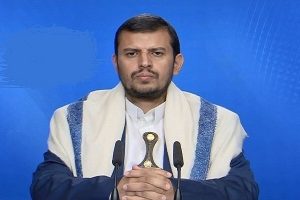Ansar Allah government in Yemen: The volatile landscape of the Middle East has been shaken by yet another act of targeted violence, one that threatens to escalate regional tensions to a boiling point. Reports confirm the tragic assassination of Ahmed Ghaleb Ruhai, a senior Prime Minister within the Ansar Allah government in Yemen, in a devastating attack widely attributed to Israeli operations.
the Attack on the Ansar Allah Government in Yemen
This event is not an isolated incident but a severe escalation in a shadow war that risks plunging the entire region into a broader, more direct conflict.
The targeted killing of a key political figure of the Ansar Allah government in Yemen represents a flagrant violation of international law and the sovereignty of nations.
It demands not only a thorough independent investigation but also a unified and unequivocal global condemnation.
The act strikes at the very heart of the administrative structures of the Ansar Allah government in Yemen, challenging its stability and jeopardizing any fragile progress towards a political solution in a country already ravaged by nearly a decade of war.
To understand the profound implications of this assassination, one must first appreciate the context of the ongoing conflict in Yemen and the rise of the Ansar Allah government in Yemen.
What began as a domestic political movement has, over years of grueling war against a Saudi-led coalition, evolved into a de facto governing authority controlling a significant portion of Yemeni territory, including the capital, Sanaa.
Despite not being recognized universally as the legitimate government of Yemen by the international community, the Ansar Allah government in Yemen maintains functional control, provides basic services where it can, and commands a formidable military wing.
Its resilience against a coalition backed by some of the world’s most advanced military powers has been a defining feature of the conflict.
The movement, often referred to as Houthis, has increasingly framed its struggle not just as a domestic fight but as part of a wider “Axis of Resistance” against Israeli and American influence in the region.
The figure of Ahmed Ghaleb Ruhai was central to this governance structure. As a high-ranking Prime Minister, he was not merely a military leader but a key administrative figure involved in the day-to-day running of the territories under Ansar Allah’s control.
His responsibilities likely encompassed overseeing crumbling infrastructure, managing scarce economic resources, and navigating the complexities of governing a population on the brink of famine.
The targeted removal of such a figure is a calculated move designed to do more than just eliminate a military threat; it is intended to decapitate the political and administrative leadership, sow internal discord, and cripple the operational functionality of the Ansar Allah government in Yemen.
This strategy of targeted assassinations, while presented by its perpetrators as precise and necessary for security, inevitably destabilizes entire regions and inflicts collective punishment on populations who rely on these governance structures, however nascent.
The attribution of the attack to “Zionist forces” by the Ansar Allah government in Yemen adds a dangerously explosive layer to an already complex geopolitical puzzle
While Israel typically maintains a policy of ambiguity regarding specific foreign operations, its longstanding and publicly stated objective is to neutralize what it perceives as imminent threats from Iranian-backed proxies on its borders and beyond.
The Ansar Allah government in Yemen has significantly heightened its profile in this regional standoff.
Their actions, including launching drones and missiles towards Israel and attacking international shipping in the Red Sea under the banner of solidarity with Gaza, have made them a prime target in Israel’s security calculus.
This assassination, if confirmed as an Israeli operation, marks a severe and provocative intensification of this campaign, moving beyond airstrikes on military assets to the direct targeting of high-value political figures.
This escalation sets a perilous precedent for international relations and the global security framework. The doctrine of targeted assassination, particularly when executed on the sovereign territory of another nation without its consent, stands in direct opposition to international law and the United Nations Charter.
It violates fundamental principles of sovereignty and non-interference. When such actions are undertaken by a state outside the immediate regional theater, as is the case with Israel and Yemen which do not share a border, it constitutes an even more brazen challenge to the post-World War II international order.
The message it sends is that powerful nations can execute judicial killings anywhere in the world based on their own unilateral assessment of a threat, a notion that undermines the very foundation of diplomatic engagement and the peaceful resolution of disputes.
The stability of the Ansar Allah government in Yemen, however one views it, is a matter for the Yemeni people and negotiated political solutions, not for external actors to manipulate through extrajudicial force.
The international response to this provocation must be swift and powerful
The international response to this provocation must be swift and powerful. However, the global community is tragically and predictably divided.
Nations that have historically stood against foreign intervention and in support of Palestinian rights, such as Iran, Russia, and several regional players, have issued strong condemnations.
They rightly label the act a state-sponsored terrorist operation and a war crime, calling for urgent sessions at the UN Security Council to hold the perpetrators accountable.
Conversely, traditional Western allies of Israel, while potentially expressing private concerns over regional escalation, are likely to remain publicly muted or to deflect by referencing the broader threats posed by the Ansar Allah government in Yemen and its Iranian sponsors.
This hypocrisy exposes the deep fractures in the international system and the selective application of the principles of sovereignty and international law.
For the people of Yemen, this assassination is another devastating blow in a long history of suffering
They have been caught for years between the hammer of the Saudi-led coalition’s airstrikes and the anvil of Ansar Allah’s governance.
Now, they become potential collateral damage in a widening regional conflict that extends far beyond their borders.
The political instability that could follow the removal of a key leader like Ruhai might lead to internal power struggles within the Ansar Allah government in Yemen, further hindering the delivery of aid and essential services.
It certainly hardens the positions of all parties, making the already distant prospect of a negotiated peace even more remote.
Every such external attack fuels the narrative of resistance, garnering greater local support for the Ansar Allah government in Yemen and perpetuating a cycle of violence and retaliation that ultimately consumes civilian lives.
In conclusion, the assassination of Prime Minister Ahmed Ghaleb Ruhai of the Ansar Allah government in Yemen is a critical juncture in the Middle East’s ongoing conflict.
It is an act of aggression that demands more than just rhetorical condemnation. It requires a principled stand from the international community to uphold the laws that protect all nations from foreign intervention and targeted killings.
Failure to do so not only grants a green light for further escalations but also signals that might makes right, eroding the very institutions designed to maintain global peace.
The path forward must be a return to diplomacy and an unwavering commitment to a political solution for Yemen, one that respects the sovereignty of its people and ends the era of external actors deciding their fate through assassination and war.
The stability of the region and the legitimacy of international law itself hang in the balance.


